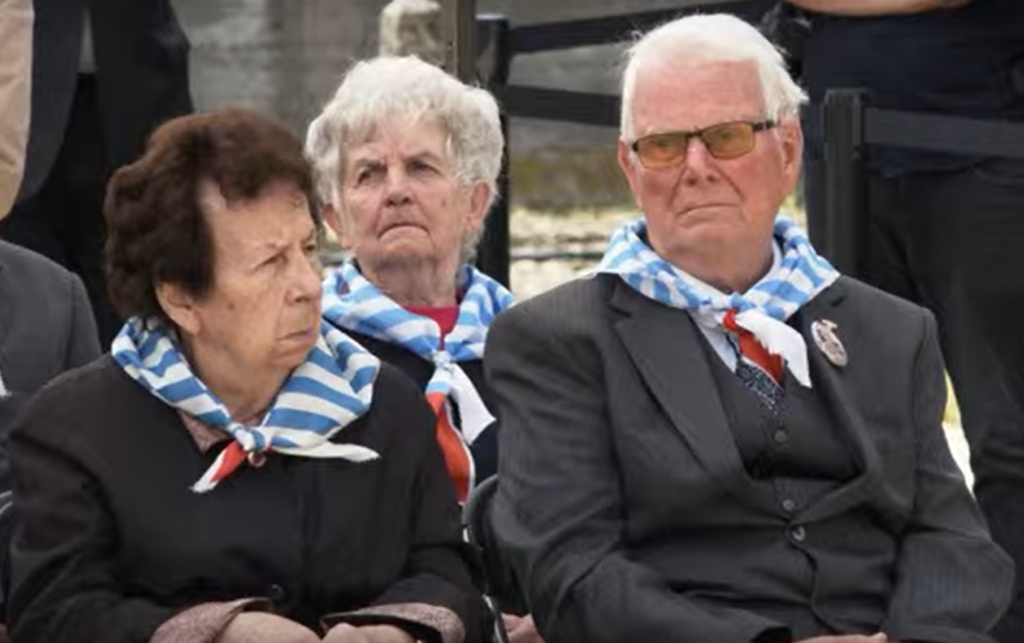
“Today it is difficult to imagine the immensity of suffering and contempt experienced by the prisoners of the death factories” – wrote the Speaker of the Sejm Elżbieta Witek in a letter addressed to the participants of the celebration of the National Day of Remembrance of the Victims of German Nazi Concentration Camps and Death Camps. On June 14, 1940, the Germans sent the first transport of Poles from the prison in Tarnów to the Auschwitz camp.
“It’s hard to imagine the dramaturgy of that first transport” – Piotr Cywiński, director of the Auschwitz-Birkenau Museum, said. “729 people left. One man ran away, ran towards the forest, shots were fired… To this day, we do not know whether he reached the freedom or not. Probably the first victim of KL Auschwitz before the final arrival” – he recalled those events.
“I found myself, like all newcomers to Auschwitz, in conditions that shattered all my previous notions. Within a few days, I felt stunned, as if transported to another planet. I witnessed gruesome images in comparison to which Dante’s hell faded completely” – Deputy Prime Minister, Minister of Culture and National Heritage prof. Piotr Gliński quoted the words of Captain Witold Pilecki, which – as he emphasized – “fully reflect the horror of the camp reality of the German Konzentrationslager Auschwitz”. “Today, 83 years have passed since the beginning of this criminal death machine of the German Nazi concentration and extermination camp KL Auschwitz. This date is the day of the arrival to Oświęcim of the first transport of 728 men from the prison in Tarnów, Poles considered by the Germans to be dangerous to the Third Reich” – he added.
“The camp, which was set up for the extermination of Polish citizens, was soon included in the German plan of the so-called final solution to the Jewish question, i.e. the mass murder of European Jews, and became a global symbol of the martyrdom of many nations. The enormity of suffering, torment, physical torture and harm inflicted on the human soul in this place is beyond words” – said prof. Glinski. “On the National Day of Remembrance for the Victims of German Nazi Concentration Camps and Death Camps, I would like to express my deepest respect to all prisoners of Auschwitz and other concentration and extermination camps, as well as members of their families” – he added.
A special letter to the participants of the ceremony was sent by the Speaker of the Sejm, Elżbieta Witek. “It is difficult today to imagine the immensity of suffering and contempt experienced by the prisoners of the death factories” – she wrote. “The enormity of suffering forces us to reflect on how to build the world so that ideologies that are ready to subordinate human dignity to other doctrines will never appear again. We owe it to the victims and those who survived” – emphasized Witek.
Participants of the ceremony paid tribute to the victims by laying wreaths and flowers at the Wall of Death.
On June 14, 1940, the Germans sent a group of 728 Poles from the prison in Tarnów to the Auschwitz camp. Among them were soldiers of the September Campaign, members of underground independence organizations, middle school and university students, as well as a small group of Polish Jews. They received numbers from 31 to 758. This date is considered to be the beginning of the operation of the German Nazi concentration and extermination camp Auschwitz.
Anna Wiejak
